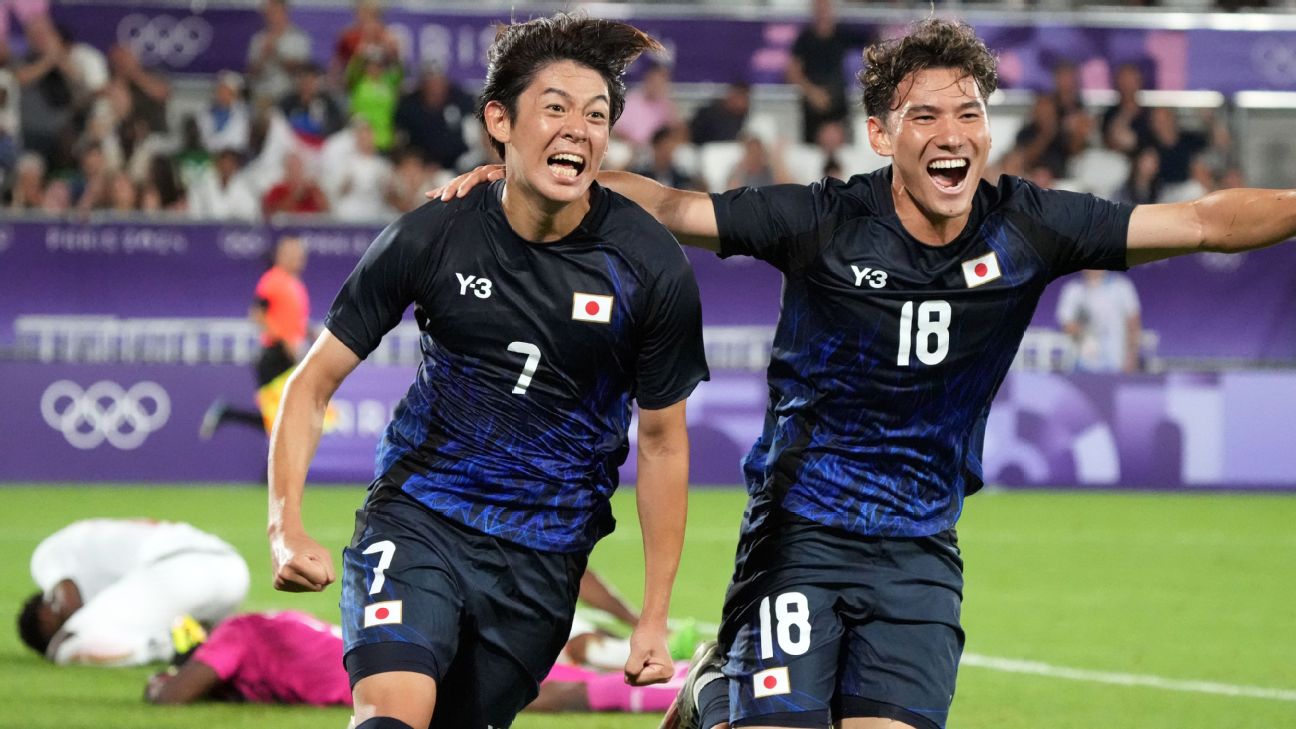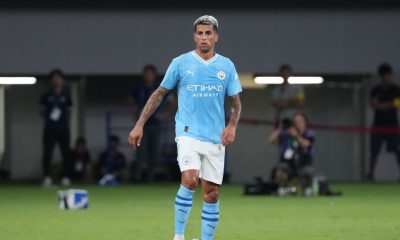Japan are no strangers to going far in the men’s football tournament at the Olympics.
Even if they are still to establish themselves among the world’s top teams, Japan have finished fourth in two of the past three editions of the Games — narrowly missing out on a coveted medal in both London and on home soil in Tokyo.
But even with the high standards they have set for themselves in recent times, the Paris Olympics are going better than expected.
With two games down and one still to go in the group stage, Japan are just one of two teams to have already booked their place in the quarterfinals — alongside newly-crowned European champions Spain.
Granted, the Samurai Blue are hardly slouches considering they are one of Asia’s traditional powerhouses and currently sit a creditable 18th in the FIFA world rankings.
Yet, the fact that Japan are the only team in the ongoing men’s football tournament to have fielded an entirely under-23 team — opting against turning to the three allowed overage players — makes their displays so far that much more impressive.
An opening-day 5-0 rout of Paraguay was followed up by a less straightforward 1-0 win over Mali on Saturday evening.
While the emphatic triumph over Paraguay — which was aided by an early red card for the opposition — was a display of cohesion and panache, the victory over Mali perhaps gave a stronger indication over the legitimacy of their medal quest.
On this occasion, they faced a much tougher challenge — especially without a numerical advantage.
It meant that, even though they still tried — and, at times, managed — to play with the same sort of expansiveness that they achieved against the Paraguayans, the contest was not always on their terms.
Mali, with plenty of pace down the wings and a direct approach led by spearhead Cheickna Doumbia, also caused the Japanese far more uncomfortable moments than they had endured in their campaign opener.
And still, Japan passed the test — although it might have been a far different story if Doumbia had not missed an injury-time penalty.
Goalkeeper Leo Kokubo showed why he could be a pivotal figure — especially for a team that is constanly looking to be on the front foot — with a series of fine saves.
In the engine room, captain Joel Chima Fujita and Rihito Yamamoto never stopped trying to initiate the brand of football coach Go Oiwa is asking of them, with the latter eventually emerging as the match-winner with an opportunistic strike with just eight minutes remaining.
The Samurai Blue also showed they have decent depth with the likes of Ryotaro Araki and Fuki Yamada coming into the starting XI, while Kein Sato and Shota Fujio again offered an injection of energy coming off the bench.
For a squad bereft of experienced campaigners, the way they grinded out the result was exactly what will be required come the knockout round — especially if Japan want to claim a first men’s football medal since 1968.
If Tuesday’s final round of group-stage action plays out as expected, the Japanese should avoid a clash with Spain and will be confident in their prospects regardless of whether it is Egypt or Dominican Republic they meet in the last eight.
Still, it could very likely be Argentina — boasting notable names such as Julián Álvarez and Nicolás Otamendi — that will be waiting if they reach the semis.
If they do have to settle for the third place playoff once again, it could easily be hosts France or Spain vying with them for the bronze medal.
The former, in particular, have two formidable overage attackers with Premier League experience in Alexandre Lacazette and Jean-Philippe Mateta, not to mention young starlets such as Michael Olise, Rayan Cherki and Manu Koné.
Only time will tell if Japan’s decision not to bolster their team — and their medal prospects — with senior stalwarts of their own will come back to haunt them.
For now, however, their faith in youth is paying off.













